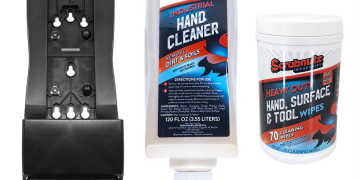The skin, as the body’s largest organ, is highly responsive to environmental changes. Seasonal shifts in temperature, humidity, and sunlight exposure can profoundly impact its appearance, texture, and overall health. Many people notice that their skin feels drier in the winter, oilier in the summer, or more prone to irritation during transitional periods. Understanding how seasonal changes affect your skin and making the necessary adjustments to your skincare routine can help you maintain a balanced, healthy complexion year-round.
How Seasonal Changes Impact the Skin
Each season brings unique challenges for your skin, and being aware of these factors can help you proactively address potential issues.
1. Winter
Winter is notorious for its drying effects on the skin. Low temperatures and reduced humidity levels strip moisture from the skin, leading to dryness, flakiness, and irritation. Indoor heating further exacerbates the issue by depleting natural oils. Sensitive skin types are particularly prone to redness and cracking during the colder months.
2. Spring
Spring often brings relief from winter’s harsh conditions, but it also introduces new challenges. Increased pollen levels and other allergens can irritate the skin, causing redness, itchiness, or flare-ups of conditions like eczema. As temperatures rise, skin may also produce more oil, leading to clogged pores.
3. Summer
Hot and humid conditions in summer increase sweat and sebum production, making skin more prone to oiliness, acne, and clogged pores. Prolonged sun exposure can cause sunburn, hyperpigmentation, and long-term damage such as premature aging or even skin cancer.
4. Fall
The transition from summer to fall often leads to fluctuating temperatures and reduced humidity, which can confuse the skin. It may feel oily in some areas and dry in others. This shift can also result in a weakened skin barrier, making it more susceptible to irritation and dehydration.
Adapting Your Skincare Routine for Seasonal Changes
Adjusting your skincare routine to suit the demands of each season is essential for maintaining healthy skin. Here’s how to tailor your approach throughout the year:
Winter Skincare Tips
- Prioritize Hydration:
- Use a richer moisturizer containing ingredients like ceramides, shea butter, and hyaluronic acid to lock in moisture.
- Apply a hydrating serum before your moisturizer for an added layer of protection.
- Switch to Gentle Cleansers:
- Avoid foaming or sulfate-based cleansers that can strip your skin. Opt for cream or oil-based cleansers that nourish while cleansing.
- Avoid Hot Showers:
- While tempting, hot showers can further dry out your skin. Stick to lukewarm water and moisturize immediately afterward.
- Protect Against Windburn:
- Apply a barrier cream and use scarves to shield your face from harsh winds.
- Don’t Skip Sunscreen:
- UV rays are still present in winter, so apply a broad-spectrum sunscreen daily.
Spring Skincare Tips
- Focus on Detoxification:
- Incorporate a mild exfoliant, such as one containing lactic acid, to remove dead skin cells and clear clogged pores.
- Address Allergies:
- Use calming ingredients like niacinamide or aloe vera to soothe irritation caused by seasonal allergies.
- Lighten Up Your Moisturizer:
- Transition to a lightweight, non-comedogenic moisturizer as humidity levels increase.
- Reapply Sunscreen:
- As outdoor activities increase, ensure you’re using sunscreen with SPF 30 or higher and reapplying every two hours.
Summer Skincare Tips
- Double Down on Sun Protection:
- Use a water-resistant, broad-spectrum sunscreen with SPF 50 for outdoor activities.
- Wear protective clothing, hats, and sunglasses for added protection.
- Opt for Oil-Free Products:
- Switch to gel-based or oil-free moisturizers and sunscreens to prevent clogged pores.
- Incorporate Antioxidants:
- Use a vitamin C serum to neutralize free radicals from UV exposure and prevent hyperpigmentation.
- Stay Hydrated:
- Drink plenty of water to replenish fluids lost through sweating, and use hydrating mists to refresh your skin throughout the day.
Fall Skincare Tips
- Repair Summer Damage:
- Treat hyperpigmentation or sunspots with brightening agents like niacinamide or azelaic acid.
- Reinforce Your Skin Barrier:
- Incorporate ceramides and fatty acids to strengthen the skin as it adjusts to cooler weather.
- Gradually Reintroduce Exfoliation:
- Start using mild exfoliants to slough off summer’s buildup of dead skin cells, but avoid overdoing it.
- Prepare for Dry Conditions:
- Begin transitioning to richer moisturizers to combat the drying effects of falling temperatures.
Year-Round Essentials for Healthy Skin
While it’s important to adapt your routine to seasonal changes, certain practices should remain consistent throughout the year.
1. Sunscreen Is Non-Negotiable
UV radiation is the primary cause of premature aging and skin cancer. Apply a broad-spectrum sunscreen daily, regardless of the season or weather.
2. Stay Hydrated
Proper hydration supports skin elasticity, barrier function, and overall health. Aim to drink at least eight glasses of water daily.
3. Nourish Your Skin with Antioxidants
Products containing antioxidants like vitamin C, vitamin E, and green tea extract help protect against environmental stressors.
4. Avoid Over-Exfoliating
Excessive exfoliation can damage the skin barrier, leading to sensitivity and irritation. Use exfoliants sparingly and tailor their frequency to your skin type.
5. Customize Based on Your Skin Type
Know your skin type and select products accordingly. Oily skin may require lighter formulations, while dry skin benefits from richer, emollient products.
Lifestyle Tips to Support Skin Through the Seasons
In addition to your skincare routine, lifestyle habits play a vital role in maintaining healthy skin year-round:
- Maintain a Balanced Diet: Incorporate fruits, vegetables, and omega-3 fatty acids to support skin health from within.
- Get Adequate Sleep: Quality sleep promotes skin repair and regeneration. Aim for 7-9 hours per night.
- Exercise Regularly: Physical activity improves circulation, delivering nutrients and oxygen to your skin.
- Manage Stress: Chronic stress can trigger skin issues like acne or eczema. Practice stress-reducing activities such as yoga, meditation, or journaling.
Seasonal changes present unique challenges for your skin, but with a proactive approach and the right adjustments to your skincare routine, you can maintain a healthy, radiant complexion all year long. By listening to your skin’s needs and incorporating supportive habits, you can navigate the shifting seasons with confidence and ease.










